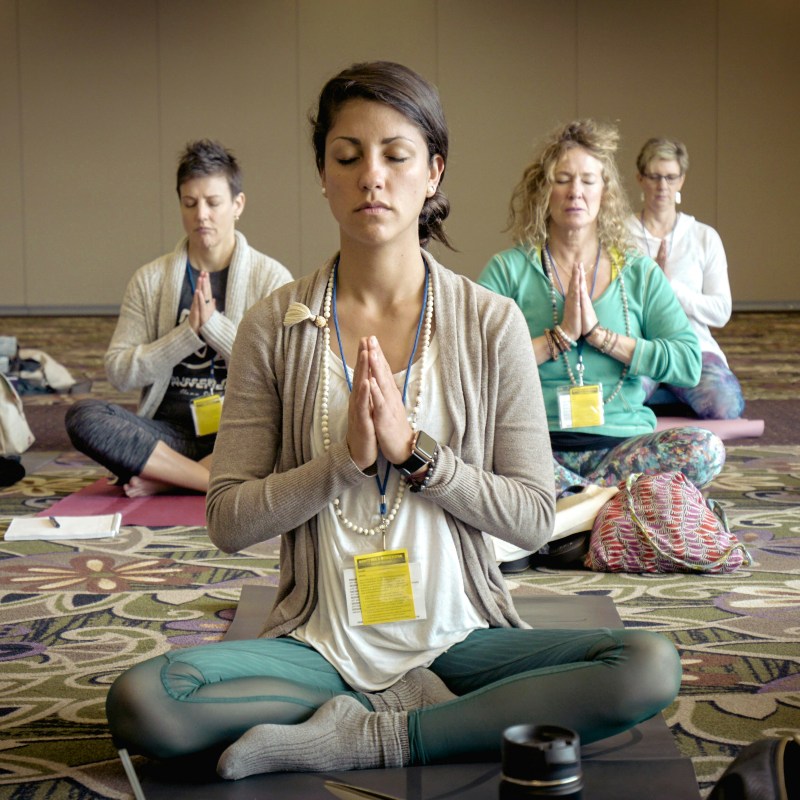
Over the last decade, interest in wellness retreats has skyrocketed. The trend took off with even greater gusto following the 2020 lockdown.
Videos by TravelAwaits
Since the shroud of the pandemic lifted, travel fever has renewed around the world. Along with tropical vacations and European adventures, a new trend has emerged: wellness retreats.
Previously, wellness retreats tended to revolve around self-discovery—a type of Eat, Pray, Love-esque journey that comes after a grueling divorce, sudden loss, or other lifestyle change.
That’s not the case today.
Tourists are tired of zipping around cities just to wait in lines and fight crowds. They’re not solely interested in old museums and ancient ruins.
Increasingly, the average traveler is on the hunt for relaxation.
But if you’re heading on a wellness retreat, you need to do your research. They’re incredibly varied, from location to spiritual practices to demographics. And if you actually want to relax, you need to find the right wellness retreat. Here’s how to do that.
How to find the right wellness retreat
There’s a pretty straightforward solution to finding the perfect wellness retreat: just read the itinerary.
Be on the lookout for wake-up calls and curfews. If you’re not a morning person, there’s no reason to think you might become one during the retreat. Similarly, look for things like meal times. Some retreats take a more ascetic route to cuisine.
Or maybe you want a wellness retreat that doesn’t have a tight schedule. There are dozens of wellness hotels designed for you to choose your own relaxation adventure, so to speak. Others might have voluntary events scheduled throughout the day, from yoga to cold plunges to massages.
If you’re not actively relaxed by the idea of that schedule (or the absence of one), then it’s not for you—it’s really that simple.
But if you’re a little unsure about whether a retreat or relaxation-centric hotel is right for you, then look through reviews on a trusted third-party site. Those should give you a pretty solid insight into whether the retreat met expectations.
But if you want even more context, here are the most common considerations that wellness retreat enthusiasts look for.
Social elements
For some people, a wellness retreat might involve solitude—and even silence. For others, it might involve interacting with other attendees.
There isn’t a right answer here, but if you tend to tilt toward either extreme, then make sure to look for things like group activities, shared lodgings, and device-free zones.
Mother Nature
You should immediately be able to gauge how nature-based a wellness retreat is based on its advertising. That being said, there’s great variation in how wellness retreats interact with Mother Nature.
Most offer views and immersion in beautiful landscapes to improve the overall atmosphere—nothing more. Other wellness retreats take a more hands-on approach through hikes, river walks, and more.
Make sure you won’t be signing up for any activities that are out of your comfort zone.
The student factor
Some people who go on wellness retreats really want to drop off the map. Unless they’re interacting with a massage therapist or another wellness attendant, they might not want to see a single soul.
On the other hand, many wellness retreats—especially those with a focus on group activities—tend to include classes. These commonly explore topics like breathwork, meditation, and possibly yogic thinking.
Or maybe the focus is on mental wellness rather than physical and spiritual. Some retreats focus on overcoming certain obstacles through group meetings. A women’s-only retreat, for example, might include heart-to-heart sessions in which attendees open up about trauma and grief. The goal is to share personal experiences with the goal of empowerment and growth.
Make sure you know whether you’re expected to follow along, in other words.
Yoga, meditation, and more
That brings us to another point: New Age elements.
Many wellness retreats are designed to help attendees gain a greater understanding of themselves, their lives, and their path in this world.
These retreats often touch on spiritual topics, which could be based on religious beliefs, New Age ideals, and more. Once more, there isn’t a right answer—but if you’re a little suspicious of crystals and asana, then maybe stick to a more neutral retreat.
